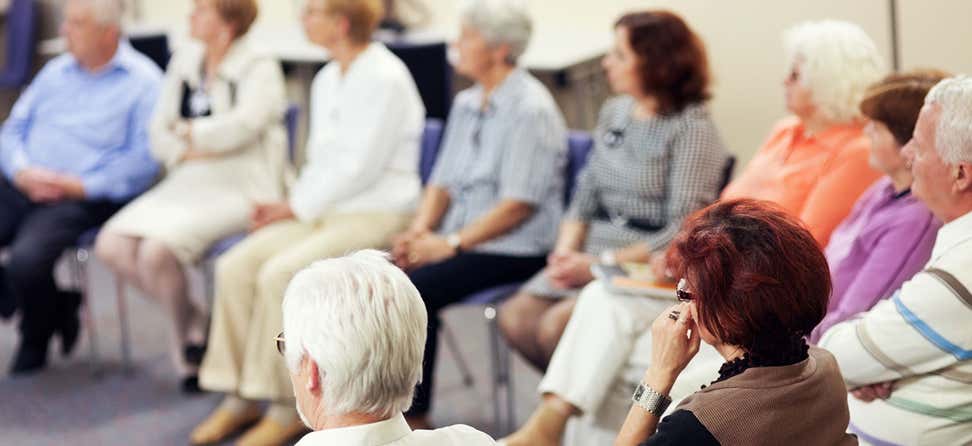From alcohol and tobacco to illicit drugs and prescription medications, the spectrum of substances abused is vast, each carrying its own set of risks and consequences. However, amidst these challenges, lies hope – the power of prevention. By equipping ourselves with knowledge, tools, and strategies, we can pave the way for healthier, substance-free lives. Join us on a journey as we explore the intricacies of substance abuse prevention and discover how we can collectively build stronger, safer communities.
Contents
What Are The Three Levels Of Prevention For Substance Abuse?
 The three levels of prevention for substance abuse are:
The three levels of prevention for substance abuse are:
1. Primary Prevention
It focuses on educating individuals and communities about the risks associated with substance abuse. And, promoting healthy behaviors, and implementing strategies to reduce the initiation of substance use. Primary prevention efforts often target the general population and aim to build resilience to discourage substance abuse.
2. Secondary Prevention
Secondary prevention focuses on early detection and intervention for individuals who are at risk of developing substance abuse problems. This level of prevention aims to identify individuals who are experimenting with or abusing substances and provide timely interventions to prevent the escalation of substance use and associated problems.
3. Tertiary Prevention
Tertiary prevention is geared towards individuals who have already developed substance abuse disorders. It focuses on reducing the negative consequences of substance abuse, preventing relapse, and promoting recovery and rehabilitation. The goal is to help individuals overcome their substance abuse problems, improve their overall well-being, and reintegrate into society as productive and healthy individuals.
What Are The Substance Abuse Prevention Tips?
The following are some substance abuse prevention tips:
Education and Awareness
Take the time to educate yourself about the various substances, their effects, and the risks associated with their use. Stay updated on research and information related to substance abuse prevention. Share your knowledge with others through conversations, workshops, or educational materials to raise awareness in your community.
Healthy Coping Mechanisms
Explore different strategies for managing stress, anxiety, and other emotions in healthy ways. This could include practicing mindfulness or meditation, engaging in physical exercise, pursuing hobbies and interests, or seeking support from friends, family, or mental health professionals when needed.
Set Boundaries
Clearly define your boundaries regarding substance use and communicate them assertively to others. For example, if you choose not to drink alcohol or use drugs, express this decision confidently to friends and acquaintances. Surround yourself with individuals who respect your choices and share similar values.
Build Strong Relationships
 Invest time and effort in nurturing meaningful relationships with family members, friends, and mentors who support your well-being and encourage positive behaviors. Maintain open communication and seek support from trusted individuals during times of difficulty or temptation.
Invest time and effort in nurturing meaningful relationships with family members, friends, and mentors who support your well-being and encourage positive behaviors. Maintain open communication and seek support from trusted individuals during times of difficulty or temptation.
Peer Resistance Skills
Practice assertiveness and refusal skills to confidently decline offers to use substances in social settings. Role-play scenarios with friends or family members to strengthen your ability to say no effectively while still maintaining positive relationships.
Seek Help Early
Be proactive in seeking help if you or someone you know is struggling with substance abuse. Reach out to school counselors, healthcare professionals, or local support groups for guidance and assistance. Early intervention can prevent substance abuse from escalating into more severe problems.
Monitor Prescription Medications
Take medications only as prescribed by healthcare providers and avoid sharing prescriptions with others. Store medications securely in a locked cabinet or medicine box to prevent misuse or theft. Dispose of expired or unused medications properly according to recommended guidelines.
Create a Supportive Environment
Advocate for policies and programs within your community that promote substance abuse prevention and support individuals in recovery. Get involved in local initiatives, such as youth mentoring programs or neighborhood watch groups, to create a supportive and nurturing environment for all community members.
Know the Risks
Educate yourself about the specific risks and consequences associated with different substances, including alcohol, tobacco, marijuana, prescription drugs, and illicit drugs. Stay informed about the potential impact of substance abuse on physical health, mental well-being, academic or professional success, and relationships.
Lead by Example
Demonstrate healthy behaviors and positive decision-making to inspire others to follow suit. Avoid using substances in front of impressionable individuals, especially children and teenagers, and be mindful of the influence your actions may have on those around you. By setting a positive example, you can contribute to a culture of substance abuse prevention and encourage others to make healthier choices.
By implementing these prevention strategies and fostering a culture of support and understanding, we can work together to build healthier, safer communities where substance abuse is less prevalent and individuals can thrive.
What Are The Natural Approaches Used?
In addition to conventional approaches, incorporating natural methods into substance abuse prevention efforts can offer individuals holistic support and alternative strategies for maintaining sobriety and well-being.
Best options
Here are some natural approaches used for substance abuse prevention:
Holistic Health Practices
Emphasize holistic health practices such as yoga, meditation, acupuncture, and mindfulness-based techniques as complementary approaches to substance abuse prevention. These practices promote overall well-being, stress reduction, and emotional balance, which can mitigate the risk of turning to substances for coping.
Nutritional Support
Encourage a balanced and nutritious diet as part of substance abuse prevention efforts. Adequate nutrition supports physical health and mental well-being, reducing the likelihood of using substances as a means of self-medication for nutritional deficiencies or imbalances.
Outdoor Recreation and Nature Therapy
Promote outdoor recreation and nature-based therapies as natural alternatives to substance use. Spending time in nature has been shown to reduce stress, improve mood, and enhance overall mental health, making it a valuable tool for substance abuse prevention and recovery.
Art and Expressive Therapies
Incorporate art therapy, music therapy, dance/movement therapy, and other expressive arts modalities into substance abuse prevention programs. These creative outlets provide individuals with healthy ways to express emotions, process trauma, and explore personal identity without resorting to substance use.
Animal-Assisted Therapy
Utilize animal-assisted therapy (e.g., equine therapy, canine therapy) as a natural approach to substance abuse prevention. Interacting with animals has been shown to reduce stress, increase social support, and improve emotional regulation, making it an effective adjunct to traditional prevention strategies.
Herbal Remedies and Supplements
Explore the use of herbal remedies and dietary supplements that support detoxification, stress reduction, and overall health. Certain herbs and supplements, such as milk thistle, kudzu root, and omega-3 fatty acids, may have potential benefits for individuals recovering from substance abuse.
Physical Activity and Exercise
Encourage regular physical activity and exercise as part of a healthy lifestyle and substance abuse prevention strategy. Exercise has been shown to release endorphins, improve mood, and reduce cravings for substances. Hence, making it an effective natural intervention for substance abuse prevention and recovery.
Mind-Body Practices
Integrate mind-body practices such as tai chi, qigong, and progressive muscle relaxation into substance abuse prevention programs. These practices promote relaxation, stress management, and self-awareness, providing individuals with natural tools to cope with life’s challenges without resorting to substance use.
Cultural and Spiritual Practices
Recognize the importance of cultural and spiritual practices in recovery. Encourage individuals to draw upon their cultural heritage, traditions, and spiritual beliefs as sources of strength, resilience, and guidance on their journey toward wellness.
By integrating these natural approaches into substance abuse prevention programs, we can empower individuals to embrace healthy, sustainable lifestyles and cultivate resilience against the challenges of substance use.
What Are The Benefits Of Preventing Substance Abuse?
Preventing substance abuse yields numerous benefits for individuals, families, communities, and society as a whole. Here are some of the key benefits:
- Improved Physical Health
Preventing substance abuse reduces the risk of developing serious health problems associated with substance use, such as liver disease, lung cancer, heart disease, and infectious diseases like HIV/AIDS and hepatitis.
- Enhanced Mental Well-being
Substance abuse prevention efforts promote positive mental health outcomes by reducing the likelihood of developing mental health disorders such as depression, anxiety, and substance use disorders.
- Stronger Relationships
Prevention of substance abuse fosters healthier interpersonal relationships within families, friendships, and communities. By avoiding the negative effects of substance abuse, individuals can maintain stronger connections and communication with loved ones.
- Better Academic and Occupational Success
This prevention contributes to improved academic and occupational outcomes by reducing the negative impact of substance use on educational attainment, job performance, and career advancement.
- Lower Healthcare Costs
By preventing substance abuse-related health problems and injuries, healthcare costs are reduced for individuals, families, and society as a whole. The efforts alleviate the burden on healthcare systems and resources.
- Positive Community Engagement
Prevention initiatives encourage community involvement and collaboration, fostering a sense of belonging, empowerment, and social cohesion. Engaged communities are better equipped to address substance abuse and other social issues collectively.
Overall, preventing substance abuse not only improves individual well-being but also contributes to the overall health, safety, and prosperity of communities and societies. By prioritizing efforts, we can create a brighter and healthier future for everyone.
Conclusion
In conclusion, substance abuse prevention is crucial for the well-being of individuals, families, and communities. By educating ourselves, fostering strong relationships, and seeking help when needed, we can reduce the risks associated with substance use and create healthier environments for everyone. Incorporating natural approaches offers additional tools and resources to support substance abuse prevention efforts.
Together, advocating for supportive policies, and promoting a culture of understanding and empathy, we can build stronger, safer communities where individuals can thrive without the burden of substance abuse.

